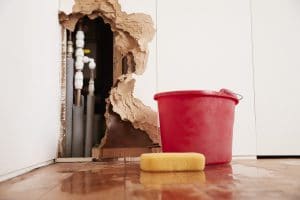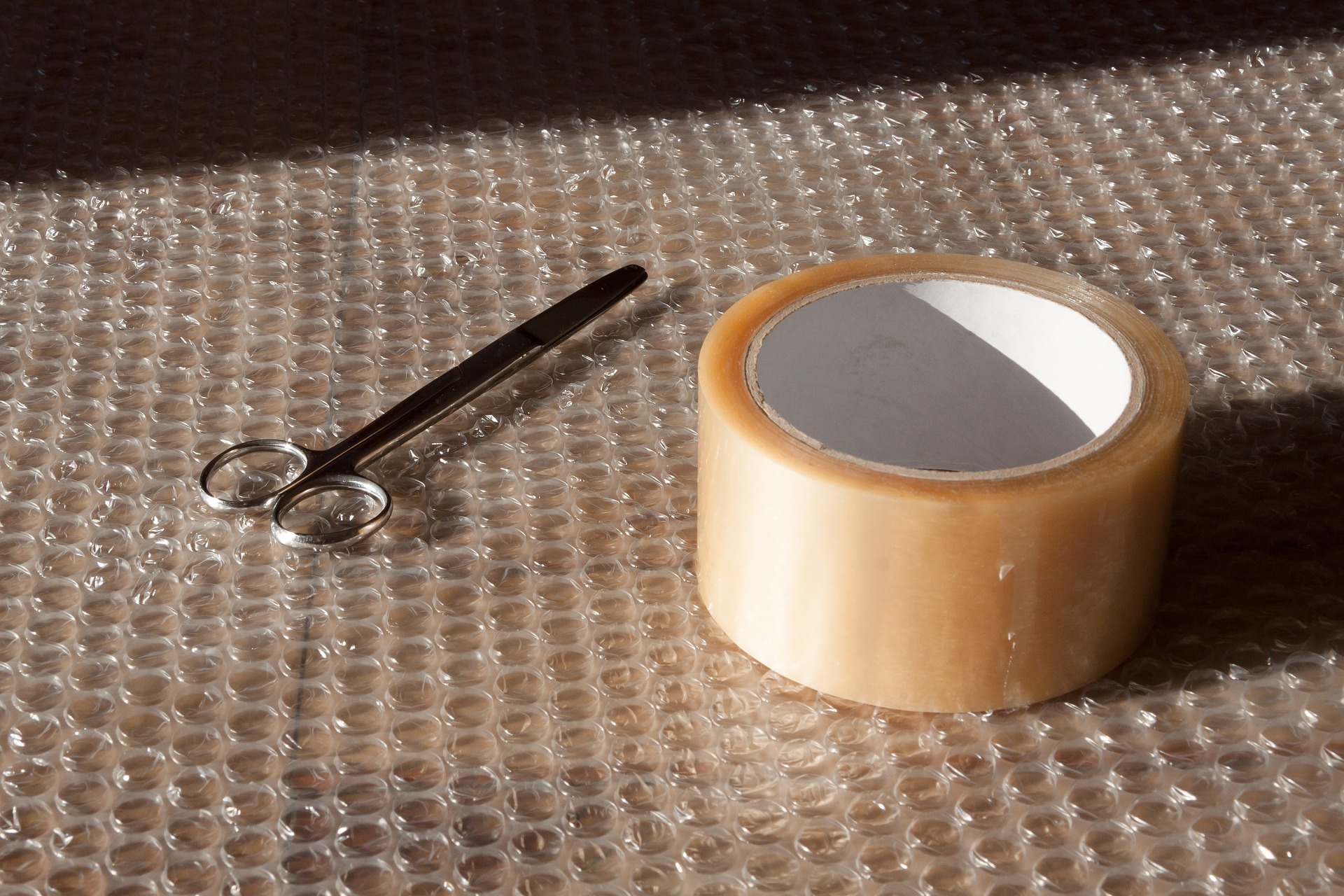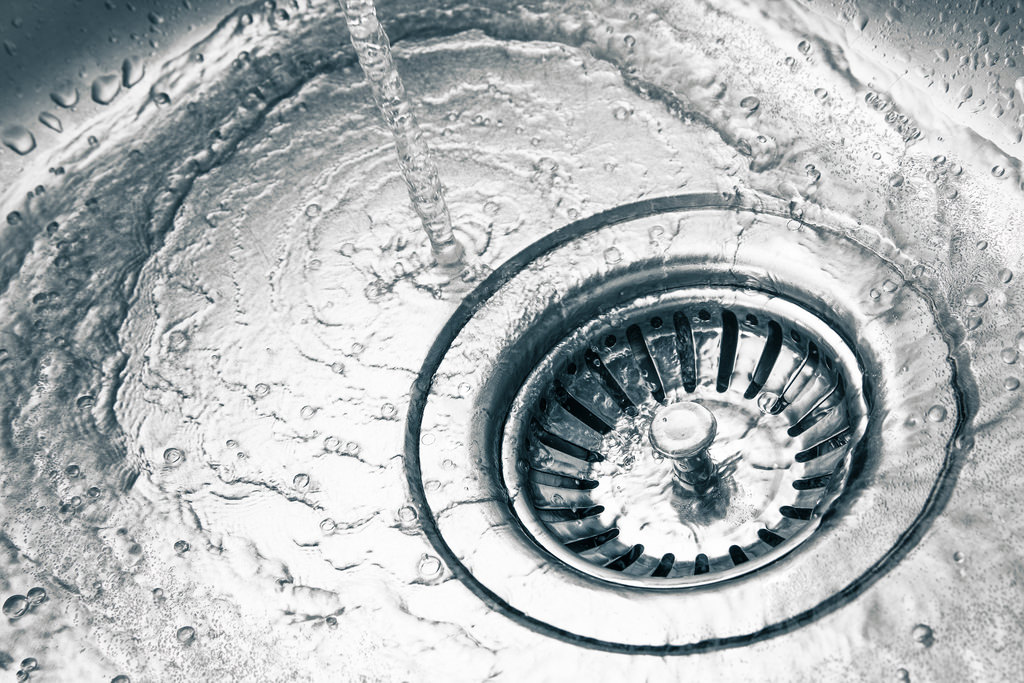How a Small Water Leak Turns into a Flood
While we all need rain every now and then to keep our lakes and rivers filled, too much can be every property owner’s nightmare. Depending on the location and severity of the storm, a small crack or hole within a foundation can turn into a flood disaster within minutes.
In addition, any crevices or cracks within the pipes as well as malfunctioning water appliances can cause floodingFlooding is the overflow or accumulation of water in areas t... More even without rain. These can include burst or frozen pipes, split washing machine hoses, overflowing drains, sewer backups, and more. Regardless, many building materials can take on severe damage, becoming warped, discolored, and deteriorated within a few hours. On the other hand, you can learn how to find and fix a water leak before it turns into a flood with these tips.
Preventing Floods by Preventing Leaks
The best way to ensure that a flood does not occur is to check that your property is not at any risk for water leaks or damage. While taking these preventionPrevention refers to actions taken to reduce the likelihood ... More methods will not guarantee that a disaster won’t occur, they will surely lower your chances of it happening.
When taking steps to prevent water damage, you will first want to inspect all areas throughout your home to ensure that everything is in good condition and is working properly. This includes the examination of your air conditioning and furnace units, washing machine, dishwasher, toilets plumbing, drains, cracks within the foundation, and any other water-related appliances.
Here are some other steps you can take to prevent water leaks from turning into floods:
- Clear away debris from rain gutters. Every year, inspect the gutter to make sure that water is not leaking in the gutter and seeping into your foundation. Make sure that all gutters and downspouts are clear of all sticks and leaves to allow the water to flow away from the property.
- Replace the washing machine supply hose. While many washing machine malfunctions are the cause of water damage and floodingFlooding is the overflow or accumulation of water in areas t... More each year, it is not because of the machine itself. It is the hose that is leaking water to cause the damage. Just be sure to replace the hose periodically; you may even want to consider purchasing a steel hose for extra durability.
- Maintain your roof’s condition. The average lifespan of a roof is about 15 – 18 years. However, additional wear and tear, such as severe storms, hail, and snow can accelerate the deterioration process. You will want to inspect it at least once a year to identify and repairRepair is the act of fixing or restoring damaged property, m... More any broken or loose shingles before the next rainstorm hits the property.
- Shut off the main water supply. Always remember where the main water shutoff valve is located on the property so you can shut it off properly to prevent as much damage from spreading as possible.
Prevent Water Leaks with Water Detection Technology
While some types of water damage are easy to find, such as high moisture levels, warped ceiling tiles and drywall, musty odors, and moldMold is a type of fungus that grows in damp or humid conditi... More growth, other kinds can be harder to find. The leak can be located in your basement, attic, behind the walls, under the floors, and in other places you couldn’t even imagine!
But thanks to modern technology, even the smallest water leaks can be detected in their earliest stages to prevent disasters, such as a flood.
These different types of water detection technology can prevent floods by detecting leaks:
- Water meter readings. One of the best ways to find a hidden leak at its earliest stages is to check the water meter. To do this, go outside and record the number on the meter, turn the main water supply off, wait 2 hours, and check it again to see if the number has changed. If it has, you have a leak outside between the house and the meter.
- Smart water valves. These systems are extra useful because they detect the problem and prevent it from getting worse. As soon as it is detected, such as a broken washing machine hose, the smart water valve will off the main water supply.

- Wireless leak alarms. When these sensors are installed, you will be notified right away from it setting off an alarm. Some of the best places to install it include the basement, crawlspace, attic, bathrooms, laundry room, or any other area that handles water.
Water Leaks with a High Chance of Causing a Flood
Unfortunately, some appliances and pipes have a significantly higher chance of causing a flood than others. This is due to the amount of water pressure that passes through these fixtures which can cause a disaster within a short period of time.
When inspecting your home for leaks, pay close attention to the following to prevent a disastrous flood:
- Broken washing machine or hose. These hoses will start to wear away and split after about 10 years. The first signs of wear and tear include finding puddles on the laundry room or kitchen floor. Make sure to have them replaced right away before they completely split and cause a flood.
- Burst pipes. In addition to frozen pipes, they can become rusty and corroded over time, running the risk of small holes popping open. If they are not replaced right away, they can rupture at any second and cause a flood.
- Loose ice maker hose. Ice makers are extremely convenient, especially on hot summer days; however, you must make sure that the hose is properly secured to the fridge. Otherwise, water will start dripping onto the floor. If the problem is not taken care of right away, the space between the floor and your basement ceiling will fill with water and even flood your basement.
- Corroded water heater. Water heaters are among the most common causes of property floods. When this happens, they are usually corroded and have caused a leak that will quickly turn into a flood if not replaced right away. If you also notice any rattling sounds, as if there were rocks within the system, it probably contains sentiments and should be replaced as soon as possible.
What to do if a Flood Occurs
While there are steps that can be taken to avoid or repairRepair is the act of fixing or restoring damaged property, m... More water leaks in their earliest stages, others may go unnoticed until it is too late. A professional disaster restorationRestoration is the process of returning a property to its pr... More company understands that these situations happen, which is why they are available 24/7 with professional flood cleanup equipment to restore the damage.
Experts technicians are IICRC-certified and have years of experience in effectively repairing the structureStructure refers to the framework or components of a buildin... More to its original condition after a flood. They will also provide content cleaning and pack-out services if any of your personal belongings have become damaged by the water. In any event that you have sustained severe water or flood damage, don’t hesitate to call your local provider to have them arrive in a timely manner to remove the source of the problem and restore the affected surfaces.












